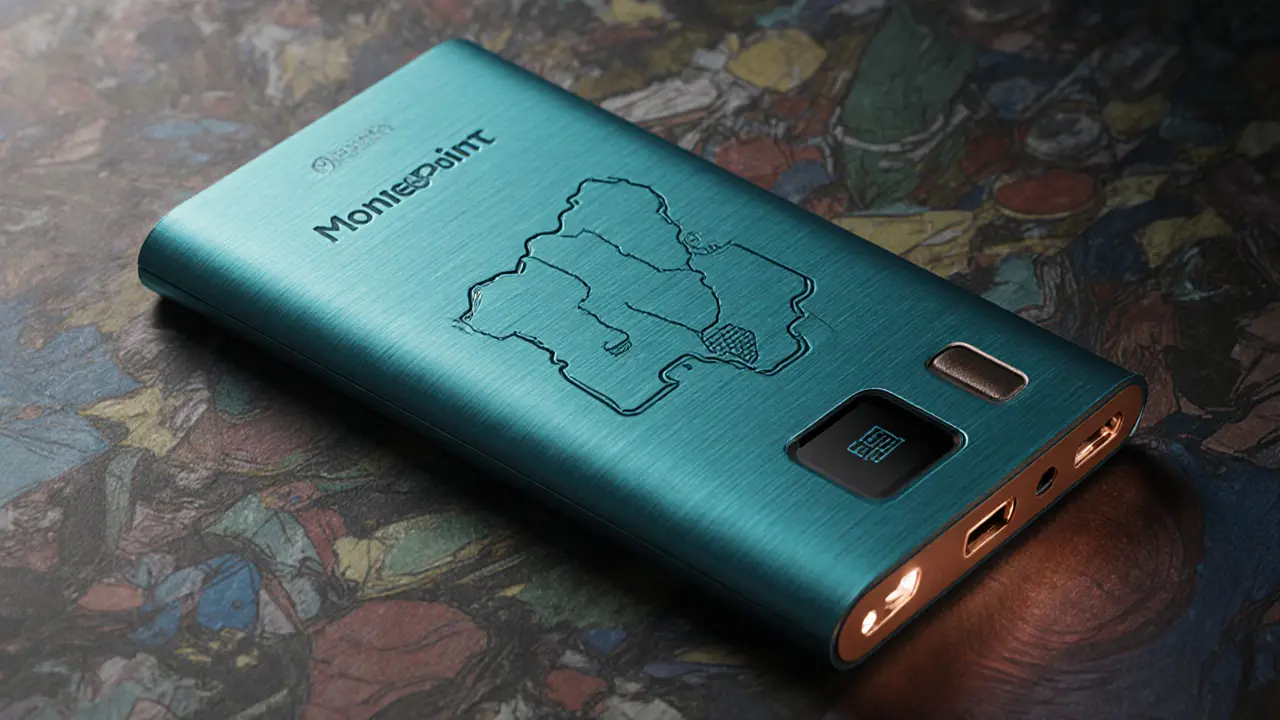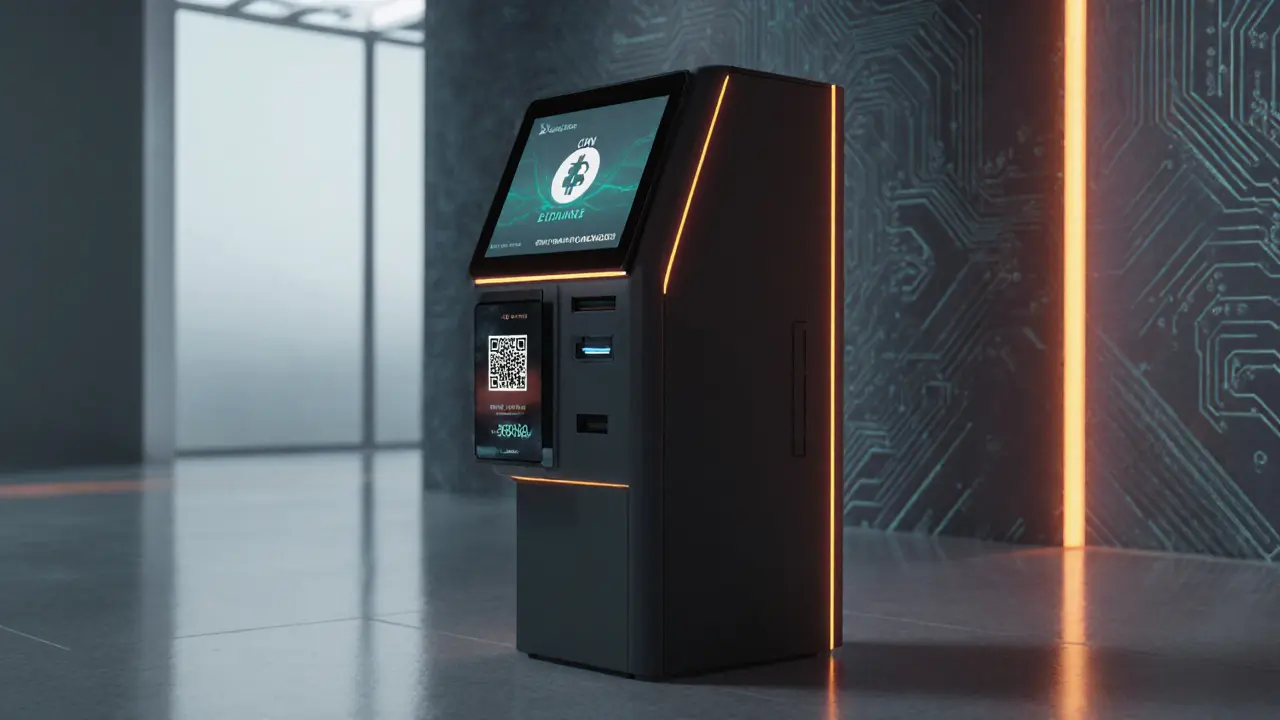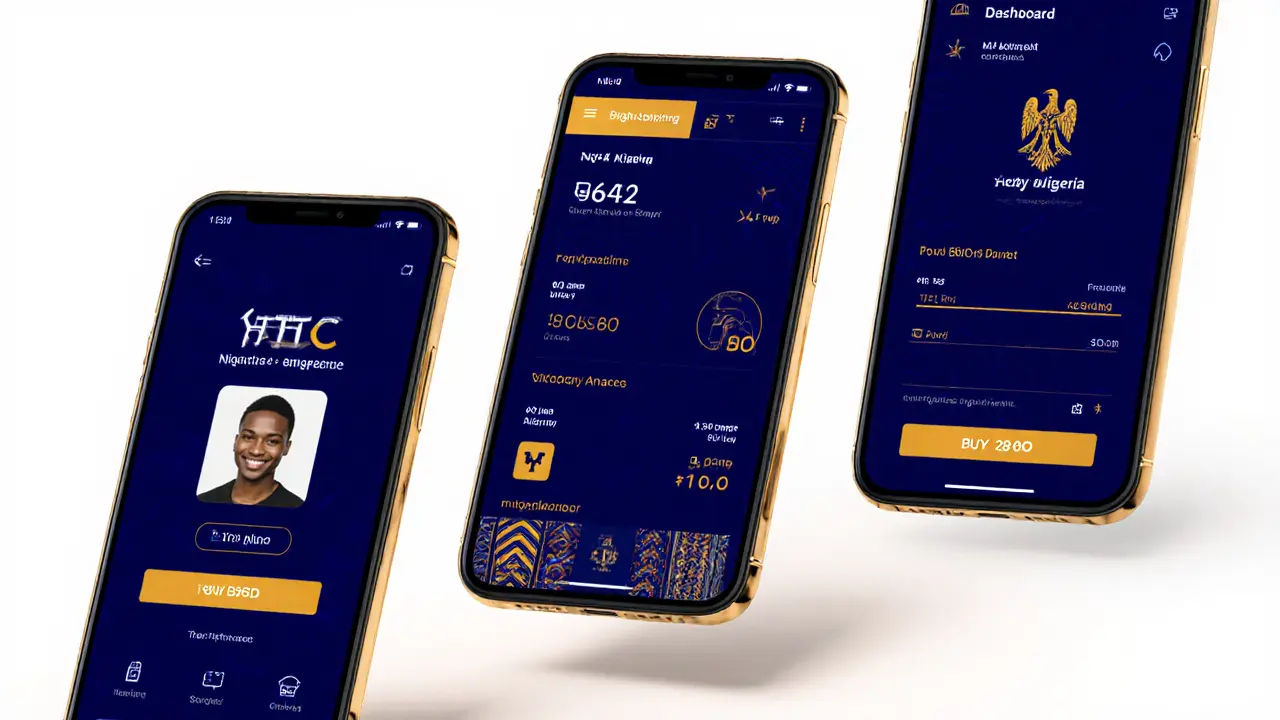Crypto Adoption in Nigeria Calculator
Calculate Nigeria's Crypto Impact
Enter key economic indicators to estimate the potential influence of crypto adoption in Nigeria.
Estimated Impact Analysis
Based on your inputs, here's what the data suggests about Nigeria's crypto adoption:
- With an inflation rate, crypto serves as a strong hedge for citizens seeking value preservation.
- A population of million indicates a large potential user base for digital assets.
- Annual transaction volume of billion USD reflects robust activity in the sector.
- As Nigeria ranks globally in crypto adoption, it continues to lead in Africa.
Conclusion: High inflation combined with a large, tech-savvy population makes Nigeria a prime candidate for continued crypto growth and integration into mainstream finance.
Quick Takeaways
- Nigeria ranks #2 globally for crypto adoption, with over 22million users in 2025.
- Sky‑high inflation and a depreciating naira are the main economic catalysts.
- The Central Bank of Nigeria lifted its banking ban in late2023, opening the door for licensed exchanges.
- Fintech unicorns like Moniepoint are weaving crypto into everyday payments.
- Looking ahead, blockchain integration with Nigerian Inter‑Bank Settlement System (NIBSS) and a potential CBDC could cement crypto’s role in the financial system.
Crypto adoption in Nigeria has exploded from a niche hobby to a mass‑movement phenomenon. By 2025 more than 10% of the population is buying, selling, or holding digital assets, and the activity is reshaping how money moves across the country. This article breaks down why the surge happened, how the regulatory environment evolved, what users actually do with crypto, and what the next few years might look like.
Economic Pressures Fueling a Digital Exodus
Nigeria’s economy is the largest in Africa, with a GDP of roughly $363billion, but it’s been battling relentless macro‑economic stress. Inflation topped 24% in 2023, and the naira has lost more than 75% of its value against the U.S. dollar since 2016. Add to that the fact that 36% of Nigerian adults remain unbanked, and you have a perfect storm for alternative finance.
When traditional savings lose purchasing power, people look for anything that can preserve value. Crypto-especially stablecoins pegged to the dollar-offers a quick, borderless hedge. A 2024 survey of 2,000 Nigerians found that 68% cited “inflation protection” as the primary reason for buying crypto, while 54% mentioned “cheaper cross‑border transfers” compared with banks that charge up to 8% per transaction.
Regulatory Landscape: From Ban to Structured Freedom
In early 2021 the Central Bank of Nigeria (CBN) slapped a blanket ban on banks servicing crypto businesses. The move drove activity underground and forced traders onto peer‑to‑peer (P2P) platforms that operated without any banking support.
Late 2023 marked a turning point. After months of industry lobbying and public pressure, the CBN announced it would lift the ban for licensed exchanges, provided they met strict anti‑money‑laundering (AML) and know‑your‑customer (KYC) standards. The regulatory shift sparked a wave of new licences. By mid‑2025, more than 15 exchanges-both international (e.g., Binance) and local (e.g., Quidax, Yellow Card)-are operating under CBN oversight.
The clearer rules have boosted investor confidence. Transaction volume on regulated platforms grew 42% YoY in 2024, while illegal P2P volumes dropped modestly, indicating a gradual migration toward compliant services.
Ecosystem Evolution: From P2P Hustle to Institutional Backbone
In 2025 the crypto ecosystem matured dramatically. Two landmark developments illustrate the shift:
- Blockchain‑enabled settlements: The Nigerian Inter‑Bank Settlement System (NIBSS) partnered with the Zone blockchain network, creating a transparent, near‑instant settlement layer for interbank transfers. This integration reduces fraud risk and cuts settlement times from days to seconds, showing how legacy finance can coexist with decentralized tech.
- Fintech unicorn breakthrough: Moniepoint secured a $1billion valuation after a $200million round led by Google and other global investors. Its platform now offers crypto wallets, P2P trading, and stablecoin payouts, bringing crypto services to millions of users who previously only had basic mobile money.
These milestones signal that crypto is no longer a fringe hobby; it’s becoming part of the nation’s financial infrastructure.

User Behaviour: How Nigerians Really Use Crypto
Community chatter on Reddit, Telegram, and WhatsApp paints a vivid picture of everyday crypto use:
- Hedging against inflation: Users keep a portion of savings in USDT or BUSD, reporting that their dollar‑pegged tokens have preserved purchasing power during naira devaluation spikes.
- Remittances: Freelancers receiving overseas payments prefer stablecoins because they avoid the 8% fees and 3‑5‑day delays typical of traditional remittance services.
- Peer‑to‑peer trading: Platforms like Binance P2P remain popular for buying Bitcoin with cash, thanks to their simple UI and local payment methods (e.g., mobile money, bank transfers).
- Exploratory DeFi: A growing minority experiments with yield farming and staking, though most users stay within the “buy‑hold‑sell” loop until they become more comfortable with smart‑contract risks.
Typical onboarding takes 2‑4 weeks for technically literate users. Most hurdles revolve around private‑key security, understanding transaction fees, and navigating exchange verification steps. Community groups fill the knowledge gap by offering step‑by‑step guides in English, Pidgin, and major local languages.
Global and Regional Position: Nigeria’s Rank in the Crypto Race
According to the 2024 Crypto Adoption Index, Nigeria scores 0.64, placing it second worldwide after India. Within Sub‑Saharan Africa it dominates: the region generated over $205billion in on‑chain value between July2024 and June2025-52% higher than the previous year.
| Country | Adoption Index | On‑Chain Volume (US$bn) | Population Holding Crypto (%) |
|---|---|---|---|
| India | 0.68 | 55 | 12.5 |
| Nigeria | 0.64 | 59 | 10.3 |
| Kenya | 0.51 | 12 | 6.9 |
| United States | 0.57 | 80 | 8.2 |
The data shows that while the U.S. moves larger dollar volumes, Nigeria punches above its weight relative to population size, driven largely by retail‑focused transactions under $10,000.
Challenges, Risks, and the Regulatory Tightrope
Despite the upbeat numbers, hurdles remain:
- Exchange reliability: During periods of extreme volatility, local exchanges have reported downtime, frustrating traders who need quick exits.
- Regulatory uncertainty: Though the CBN lifted the banking ban, lawmakers occasionally propose stricter capital controls, which could reverse some gains.
- Security awareness: Newcomers sometimes fall prey to phishing scams that mimic popular wallets. Community education has reduced incidents by 30% since 2023, but the threat persists.
- International pressure: Global bodies scrutinize nations with high crypto activity for AML compliance. Nigeria must balance openness with robust reporting to avoid sanctions.
Mitigation strategies include using hardware wallets for larger holdings, sticking to CBN‑licensed exchanges, and staying engaged with local Telegram groups that share real‑time security alerts.
Future Outlook: From Adoption to Institutionalization
Looking ahead, three trends could define the next phase:
- Deeper blockchain integration: The NIBSS‑Zone partnership is just the first layer. Plans are underway to integrate blockchain into government payrolls and tax collection, which would bring billions of naira transactions onto immutable ledgers.
- Central Bank Digital Currency (CBDC): The CBN has launched a pilot for the “e‑naira.” If successful, the CBDC could coexist with crypto, offering a regulated digital currency that still leverages the same infrastructure.
- Institutional participation: Asset managers and corporate treasuries are beginning to allocate a small percentage of capital to crypto‑linked funds, attracted by the young, tech‑savvy workforce and proven retail demand.
Economic necessity-high inflation, limited banking-will keep driving grassroots adoption, while regulatory clarity and fintech innovation will channel that energy into more formal financial services.
Getting Started: A Simple Checklist for New Users
- Choose a CBN‑licensed exchange (e.g., Binance, Quidax, Yellow Card).
- Complete KYC using government ID and a selfie; verification usually takes 24‑48hours.
- Secure a wallet: start with a mobile app wallet that offers backup seed phrase storage.
- Buy Bitcoin or a stablecoin (USDT/BUSD) via P2P or direct fiat purchase.
- Transfer a small test amount to your wallet, confirm you can send and receive.
- Enable two‑factor authentication and store your seed phrase offline.
- Explore use cases: send payments to family abroad, hedge savings, or hold for long‑term growth.
Following these steps reduces the learning curve and protects you from common pitfalls.

Frequently Asked Questions
Why is crypto so popular in Nigeria compared to other African nations?
High inflation, a weakening naira, and limited banking access create a perfect storm. When traditional savings lose value, people turn to crypto-especially stablecoins-as a quick hedge and a low‑cost way to move money across borders.
Is it legal to trade crypto in Nigeria?
Yes. Since the CBN lifted its ban on banks serving crypto businesses in late 2023, licensed exchanges can operate legally, provided they follow AML/KYC rules.
What are the safest ways to store crypto for a beginner?
Start with a reputable mobile wallet that lets you back up a seed phrase. For larger amounts, consider a hardware wallet like Ledger or Trezor, which keeps your private keys offline.
Can I use crypto to pay for everyday items in Nigeria?
Increasingly yes. Some retailers and online marketplaces accept Bitcoin or stablecoins, and payment apps like Moniepoint now let you convert crypto to naira instantly for point‑of‑sale transactions.
What’s the outlook for a Nigerian central bank digital currency?
The CBN is piloting the “e‑naira.” If the trial proves successful, a CBDC could coexist with existing crypto services, offering a regulated digital alternative while leveraging the same blockchain infrastructure.

